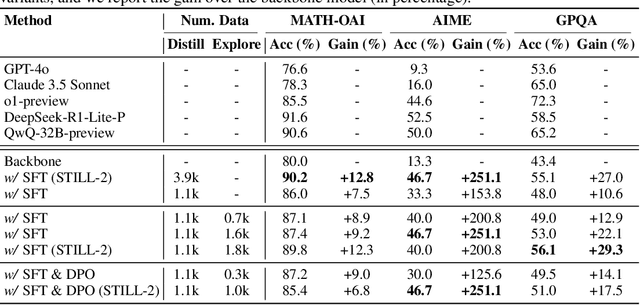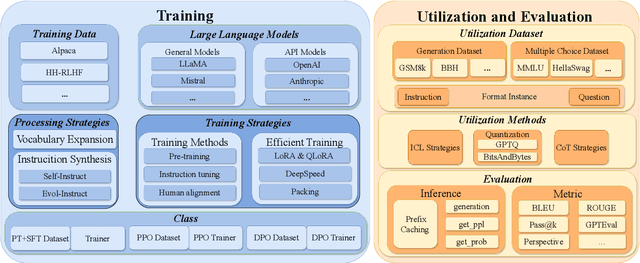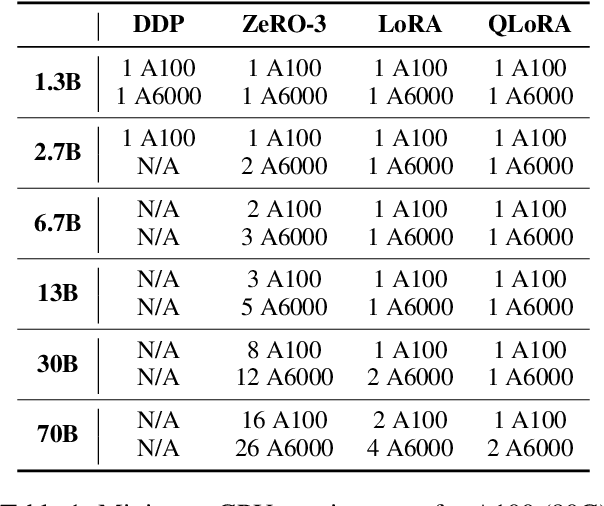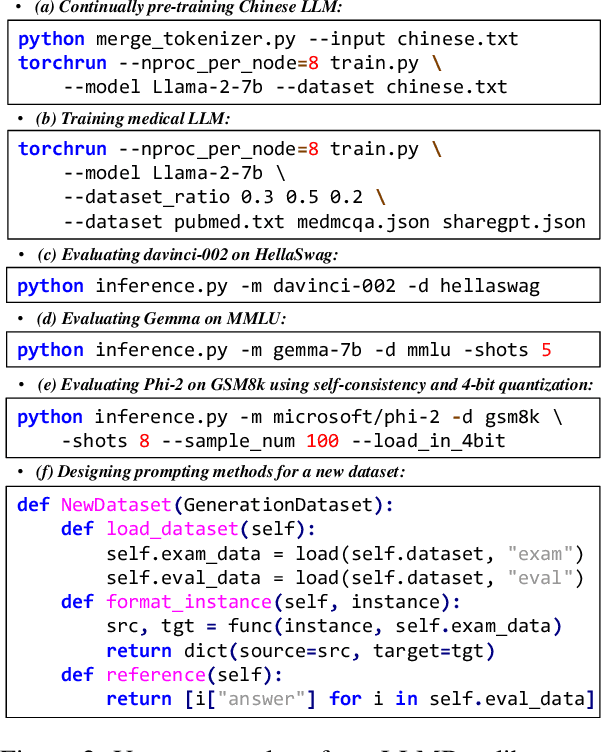Yiru Tang
Imitate, Explore, and Self-Improve: A Reproduction Report on Slow-thinking Reasoning Systems
Dec 12, 2024



Abstract:Recently, slow-thinking reasoning systems, such as o1, have demonstrated remarkable capabilities in solving complex reasoning tasks. These systems typically engage in an extended thinking process before responding to a query, allowing them to generate more thorough, accurate, and well-reasoned solutions. These systems are primarily developed and maintained by industry, with their core techniques not publicly disclosed. In response, an increasing number of studies from the research community aim to explore the technical foundations underlying these powerful reasoning systems. Building on these prior efforts, this paper presents a reproduction report on implementing o1-like reasoning systems. We introduce an "imitate, explore, and self-improve" framework as our primary technical approach to train the reasoning model. In the initial phase, we use distilled long-form thought data to fine-tune the reasoning model, enabling it to invoke a slow-thinking mode. The model is then encouraged to explore challenging problems by generating multiple rollouts, which can result in increasingly more high-quality trajectories that lead to correct answers. Furthermore, the model undergoes self-improvement by iteratively refining its training dataset. To verify the effectiveness of this approach, we conduct extensive experiments on three challenging benchmarks. The experimental results demonstrate that our approach achieves competitive performance compared to industry-level reasoning systems on these benchmarks.
Technical Report: Enhancing LLM Reasoning with Reward-guided Tree Search
Nov 18, 2024



Abstract:Recently, test-time scaling has garnered significant attention from the research community, largely due to the substantial advancements of the o1 model released by OpenAI. By allocating more computational resources during the inference phase, large language models~(LLMs) can extensively explore the solution space by generating more thought tokens or diverse solutions, thereby producing more accurate responses. However, developing an o1-like reasoning approach is challenging, and researchers have been making various attempts to advance this open area of research. In this paper, we present a preliminary exploration into enhancing the reasoning abilities of LLMs through reward-guided tree search algorithms. This framework is implemented by integrating the policy model, reward model, and search algorithm. It is primarily constructed around a tree search algorithm, where the policy model navigates a dynamically expanding tree guided by a specially trained reward model. We thoroughly explore various design considerations necessary for implementing this framework and provide a detailed report of the technical aspects. To assess the effectiveness of our approach, we focus on mathematical reasoning tasks and conduct extensive evaluations on four challenging datasets, significantly enhancing the reasoning abilities of LLMs.
LLMBox: A Comprehensive Library for Large Language Models
Jul 08, 2024



Abstract:To facilitate the research on large language models (LLMs), this paper presents a comprehensive and unified library, LLMBox, to ease the development, use, and evaluation of LLMs. This library is featured with three main merits: (1) a unified data interface that supports the flexible implementation of various training strategies, (2) a comprehensive evaluation that covers extensive tasks, datasets, and models, and (3) more practical consideration, especially on user-friendliness and efficiency. With our library, users can easily reproduce existing methods, train new models, and conduct comprehensive performance comparisons. To rigorously test LLMBox, we conduct extensive experiments in a diverse coverage of evaluation settings, and experimental results demonstrate the effectiveness and efficiency of our library in supporting various implementations related to LLMs. The detailed introduction and usage guidance can be found at https://github.com/RUCAIBox/LLMBox.
 Add to Chrome
Add to Chrome Add to Firefox
Add to Firefox Add to Edge
Add to Edge